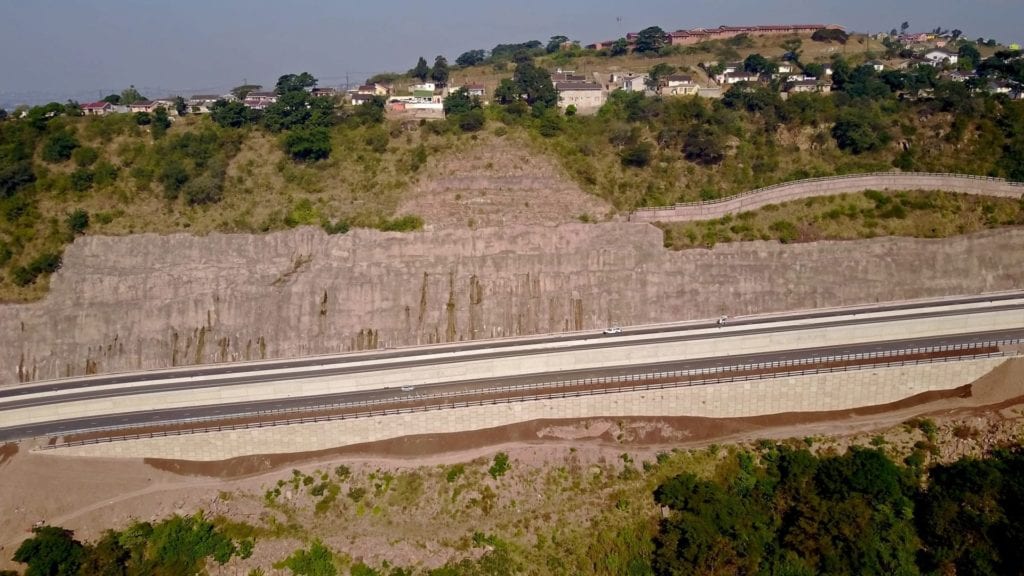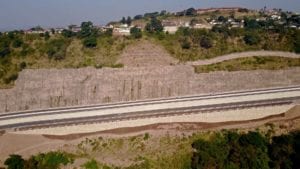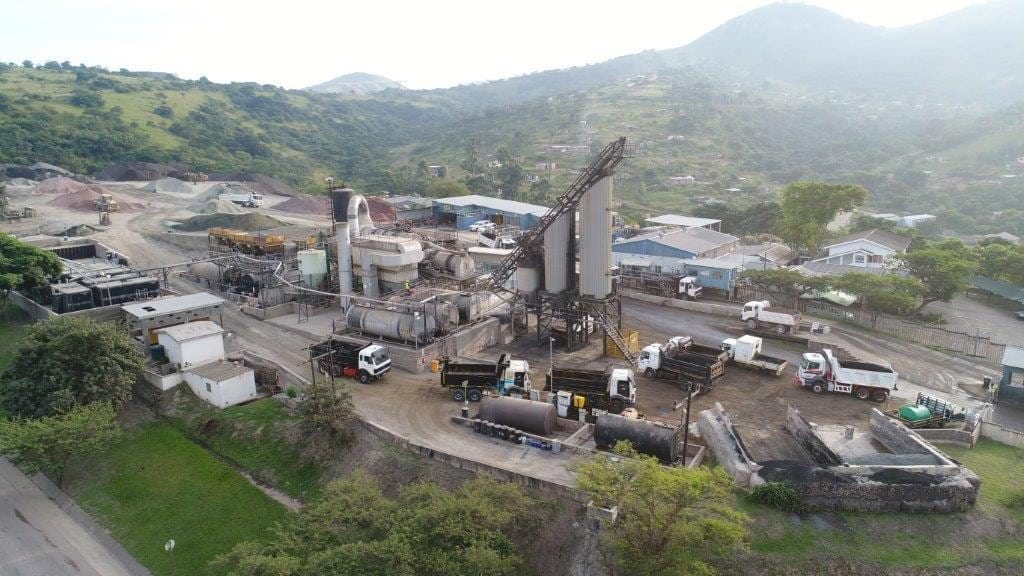 An early adopter of new technologies, National Asphalt has led from inception. IMIESA talks to Sean Pretorius, managing director, National Asphalt, about the company’s history before and after its acquisition by Raubex Limited in 2007, and the road ahead.
An early adopter of new technologies, National Asphalt has led from inception. IMIESA talks to Sean Pretorius, managing director, National Asphalt, about the company’s history before and after its acquisition by Raubex Limited in 2007, and the road ahead.
Steel Flow
“What sets us apart is the fact that we continue to explore the best solutions for the market,” he adds. A prime example is National Asphalt’s acquisition of a 60% shareholding in Shisalanga Construction in 2014. Shisalanga is a turnkey contractor in the black-top and layer-works markets, as well as the inventor of Steel Flow, a steel-slag-manufactured asphalt. The application of Steel Flow allows for 12 mm to 15 mm asphalt overlays. This ‘thin layer’ technology enables a wider surface area at half the cost of traditional UTFC applications. So far, Shisalanga has supplied around 25 000 t. Shisalanga is also a leader in the hydro-cutting field, which is a rapidly growing business unit. The technique, referred to as hydro-texturising, is a cost-effective solution for repairing flushed bituminous pavements. Other key investments include Belabela Asphalt, a company based in Botswana. National Asphalt acquired a 49% interest in 2015. Belabela is currently setting up a plant in Gaborone.History of innovation
From UTFC to EME, and a wide range of products in-between, National Asphalt has been at the forefront. A case in point is its key role in the development of warm-mix asphalt. “The M4 southern freeway in Durban, linking the N2 from the Umlazi side to the Durban city centre, was our first full-scale night operation and it was done over a four-year period,” explains Wynand Nortje, technical manager at National Asphalt. “Phase 1 proved to be very problematic in achieving compaction using a latex-based modified bitumen at night, and we had to revert to Sunday day-time operations for the final surfacing stone mastic asphalt layer.” National Asphalt began investigating an alternative modifier and came across anFT wax, well proven in European applications, which allowed the company to work at
lower temperatures. Following discussions with eThekwini Municipality, the owner of the M4 road, a series of trial sections were carried out, which proved to be very successful. Subsequently, the municipality decided to use the FT wax modifier for the next three phases on the M4. Since the Raubex acquisition, this modifier has continued to be used on the N3 western portion going into the city of Durban after the N2 and N3 intersection.
First hybrid solution for SA
National Asphalt also spearheaded the local application of the first hybrid modified binder. This product was supplied on Umgeni Road, which links the Umgeni Industrial area with Durban’s CBD. A combination of FT waxes and SBS, this product has since been successfully used on a number of majorroad networks. Another interesting and recent project is the experimental use of PelletPAVE™, a proprietary product owned by Phoenix Industries in the USA. To date, the product has been successfully trialled on the M13 Fields Hill section. About 300 t has been placed and is now being monitored. A second trial section is planned for the current N2 EB Cloete to uMhlanga rehabilitation project. “Our industry still tends to have a conservative approach, but we are steadily gaining new ground and acceptance for our own and internationally proven technologies that will contribute to long-lasting, low-maintenance infrastructure,” says Pretorius. “Alongside these endeavours, we continue to grow our footprint in South Africa. We recently set up a plant at Portland quarry in Cape Town, and this will help support further expansion plans within the Western Cape, where we see major opportunities.”
Milestone projects post 2007
2008
Western Freeway: eThekwini Municipality: Group Five/Milling Techniks JVThe project included red asphalt for the bus lanes and won an IMESA award.
2013
Vaal River to Kroondal Plaza One of the first Sanral contracts with 40% RA in the base and overlaid with a UTFC – National Asphalt’s ULM under licence from Jean Lefebvre (UK) and certified by Agrément SA. N2 New Guelderland to Mtunzini After the initial success at Kroondal, 57 km of the N2 was repaired with an A-P1 modified base and, again, 40% RA (50 000 t) and overlaid with the ULM (57 000 t). N3 Candella to Paradise Valley The first contract in South Africa to combine EME and RA: 66 000 t EME with 20% RA and a 10/20 pen binder. This was overlaid with 16 000 t ULM Inanda Road, Hillcrest Warm-mix asphalt with 25% RA and the first use of Foam Tech technology for the Department of Transport. 27 000 t supplied from Cliffdale 69 000 t A-P1 base with 40% RA and 10 000 t ULM2014
N2 Murchison to Marburg 69 000 t A-P1 base with 40% RA and 10 000 t ULM.2015
N3TC Mooi River/Estcourt 72 000 t modified wearing course and base, of which 14 000 t had 20% RA.2016
Pier 2, Transnet Introduced Transnet to EME for the heavily trafficked Pier 2 at Durban Harbour. This was overlaid with a SALPHALT wearing course (20 000 t).2017
N3 Harrismith to Warden 55 000 t of different mixes using AE-2 binder. 104 000 t of continuously coarse graded asphalt using AR-1 binder with rolled-in chips. R61 Marburg 20 000 t, of which 12 000 t was for theULM overlay Hammarsdale Interchange Project Currently carrying out UTFC plant trials at Cliffdale: 22 000 t to be supplied. www.nationalasphalt.co.za








